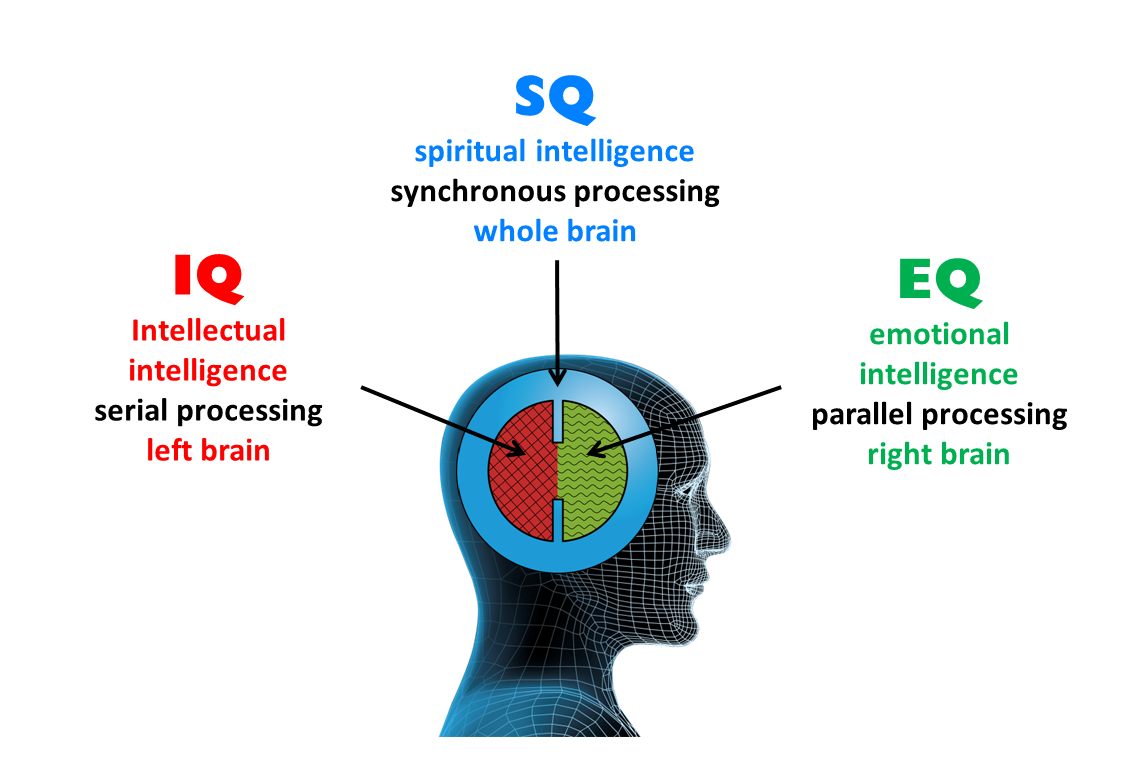The Four Types of Intelligence: The Key to a Successful Life
When we hear the word “intelligence,” most of us immediately think of academic brilliance—solving complex math problems, memorizing facts, or scoring high on tests. However, intelligence is much more than just IQ (Intelligence Quotient). In reality, success in life depends on a combination of different types of intelligence.
Psychologists have identified four key types of intelligence that play a crucial role in shaping our personal and professional lives:
Contents
1) Intelligence Quotient (IQ) – The Power of Logic
IQ is the most commonly recognized type of intelligence. It measures a person’s ability to think logically, solve problems, and process information quickly. People with high IQs often excel in academics, analytical thinking, and technical skills.
However, while IQ is important for academic and professional success, it is not the only factor that determines a person’s ability to thrive in the real world. Many individuals with high IQs struggle with emotional stability, social interactions, or resilience in tough times.
2) Emotional Quotient (EQ) – The Power of Emotions
EQ is the ability to understand, manage, and express emotions effectively. It also involves recognizing and responding to the emotions of others. People with high EQ are empathetic, self-aware, and good at handling stress and relationships.
In many cases, individuals with high EQ tend to be more successful in leadership roles, teamwork, and personal relationships than those with just a high IQ. A well-developed EQ helps a person maintain composure, resolve conflicts peacefully, and build meaningful connections.
3) Social Quotient (SQ) – The Power of Relationships
SQ refers to a person’s ability to interact with others, build networks, and maintain long-term relationships. Those with high SQ are excellent at communication, collaboration, and social adaptability.
In the professional world, SQ plays a significant role in career growth. No matter how skilled or knowledgeable a person is, if they lack social intelligence, they may struggle to work in teams, negotiate deals, or gain trust in their workplace.
4) Adversity Quotient (AQ) – The Power of Resilience
AQ is a crucial but often overlooked type of intelligence. It measures a person’s ability to handle challenges, recover from setbacks, and stay motivated despite difficulties.
People with a high AQ don’t give up easily. They face hardships with patience, learn from failures, and keep moving forward. On the other hand, those with a low AQ tend to become easily discouraged, overwhelmed, or even consider giving up when faced with adversity.
Why IQ Alone Is Not Enough
Traditionally, schools and educational institutions emphasize IQ development, focusing on academic achievement. However, research shows that people with high EQ, SQ, and AQ often achieve greater success than those who rely solely on IQ.
For example, a person with an average IQ but strong EQ and SQ can excel in leadership, teamwork, and business, whereas someone with a high IQ but low emotional and social intelligence may struggle with relationships and workplace dynamics.
A Message for Parents and Educators
It is essential to nurture all four types of intelligence in children, not just IQ. Parents and teachers should encourage:
- Emotional intelligence (EQ): Teach children to express emotions healthily, develop empathy, and handle stress effectively.
- Social intelligence (SQ): Encourage them to build friendships, communicate well, and collaborate with others.
- Adversity intelligence (AQ): Help them learn how to deal with challenges, stay persistent, and develop a positive attitude toward failures.
Instead of simply preparing the road for children by making life easier for them, we should focus on preparing children for the road by equipping them with the skills they need to navigate life’s challenges.
Final Thoughts
Success in life is not just about academic intelligence. True success comes from a balance of IQ, EQ, SQ, and AQ. By developing these four intelligences, we can lead a more fulfilling, resilient, and meaningful life.
So, next time you think about intelligence, remember—it’s not just about how smart you are, but also about how well you understand emotions, build relationships, and overcome challenges.













